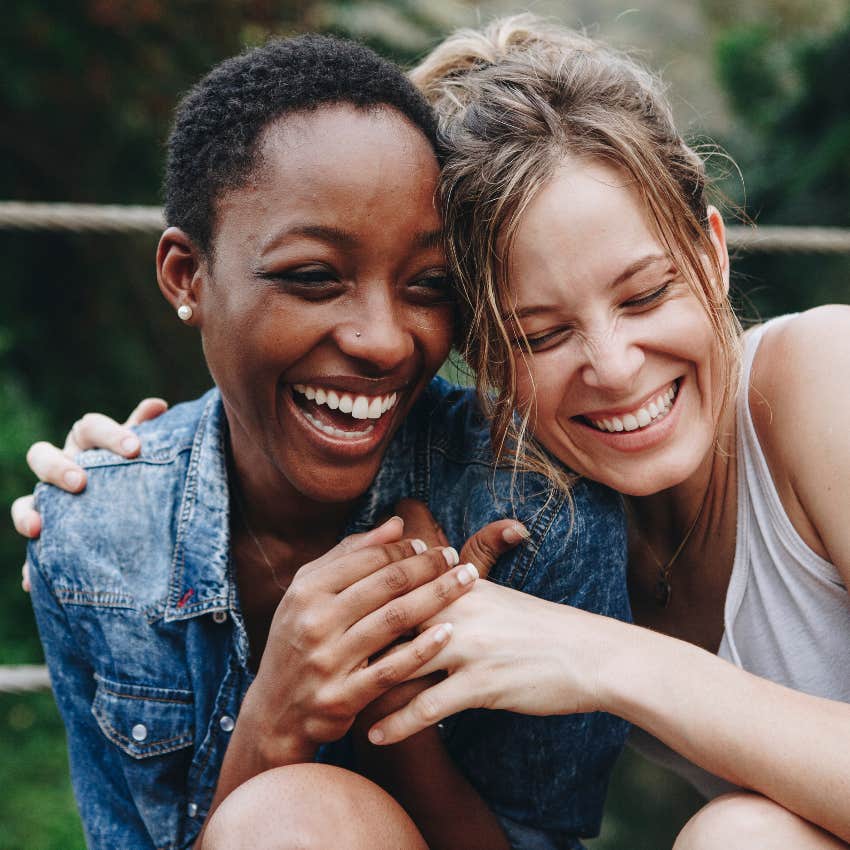Millennial Therapist Shares 8 Mental Health Reminders For People In Their 20s And 30s Who Feel Lonely & Unfulfilled
Connection to ourselves and others is the opposite of loneliness.
 Jacob Lund / Shutterstock
Jacob Lund / Shutterstock Divya Robin is a licensed mental health counselor in New York City who works mainly with millennial clients. As a millennial herself, Robin revealed professional insights on topics that aren’t openly discussed.
She shed light on some “common struggles” millennials face, noting that shifting into young adulthood — ages 20 to 40 — "comes with twists, turns learning, [and] unlearning” deeply ingrained patterns.
Here are 8 mental health reminders for people in their 20s and 30s who feel lonely and unfulfilled:
1. Having no feelings doesn’t make you low-maintenance
“If people have praised you for having minimal needs or feelings, it has more to say about their discomfort with emotions and vulnerability than it does about you,” Robin explained.
Not expressing your emotions doesn’t mean that you’re easygoing or chill. It just means that you’re bottling up what you feel and not sharing it with others for fear of negative feedback.
Everyone has emotions, whether they recognize them or not — It’s literally what makes us human. While there’s a narrative that not saying what you feel makes you cool, really, it makes you inaccessible to yourself and the people around you.
True connection hinges upon vulnerability. When we share the deepest parts of ourselves, we’re able to create meaningful relationships.
2. You don’t have to convince others to see your struggles for them to be valid
Robin noted that it’s “not your job” to make anyone else understand how you’ve experienced harm. She also acknowledged that it’s totally normal to want other people, especially the generations above us who raised us, “to validate your suffering.”
For all the millennials who have tried to mend wounds bestowed upon them by their boomer parents, only to be disregarded, these are important words to hear.
Recognizing the ways we’ve been hurt is the first step to becoming the truest version of our fully realized selves.
While we can ask for accountability from others, we won’t always get it. If you’ve voiced your struggles to someone who’s ignored them, that brush-off doesn’t negate your reality. Rather, it highlights how the person you’re engaging with is still struggling, too.
Robin shared the healing observation that “It’s especially hard for people to validate your suffering who can’t even validate their own.”
3. You’re allowed to rest when you’re tired
Millennials who were raised in the '90s and came of age in the early aughts were taught the misguided lesson that your work life defines your value. Growing up in the golden age of hustle culture translated into feeling guilty for not working hard, meaning that rest seems like an indulgence that we can’t afford.
Yet, as Robin made clear, “You do not have to ‘earn’ rest when you are tired. You do not have to ‘earn’ your self-care, time off, or any other forms of nurturing."
A major part of giving ourselves grace and treating ourselves with dignity means listening to what our bodies are saying. If we need that special little treat to get through the day, we should get it. If we need to take time away from the world, including our jobs, that’s more than OK.
Replenishing our spirits and resting when we need to rest help us remain grounded and connected, which are more important factors than any job.
4. You don’t always have to seek your purpose
Another deeply millennial mindset is the idea that everything we do should align with our values. We should find and commit ourselves to our passion instead of just a job that pays the bills and keeps a roof over our heads.
Robin explained how constantly seeking purpose can be dangerous to our mental health, writing, “When you’re so fixated on this, you end up actually missing the purposeful moments.”
Being present is easier said than done, yet when we’re always looking outside of ourselves for the next meaningful thing, we’re likely not to recognize the meaning our lives already hold.
Practicing small acts of gratitude is one way to find purpose in our mundane yet necessary tasks. Savor that first sip of coffee every morning. Take deep breaths when you walk your dog. Text a friend to let them know how much you love them.
It’s these small things that give our life purpose, things that are easy to miss if we’re looking elsewhere.
5. Your family of origin doesn’t dictate your future
Robin explained that while the ways we are raised affect the people we grow up to be, not everything is determined by our families, especially our future relationships.
“Your parents’ relationship, your household environment, and your childhood experiences will, of course, influence the person you are,” she said. “Still, it does not have to define the quality of relationships you deserve.”
Attachment theory maintains that our relationships with our primary caregivers in childhood determine how we relate to people as we grow older, from friendships to work relationships to partnerships.
Yet our attachment styles aren’t written in stone, and once we recognize our patterns of behavior, we’re able to take control of how we want to show up for ourselves and others.
6. The quality of your friendships is more important than quantity
“The goal isn’t to have tons of friends or be the most liked person,” Robin said. “If you are, you’ll likely be lonely.”
“If you’re appealing to the masses, you probably aren’t having the most present or deepest relationships,” she concluded.
Having one or two people who really understand you, who see and validate you, is so much better than having surface-level friendships with a lot of people.
 Rawpixel.com / Shutterstock
Rawpixel.com / Shutterstock
Showing up as your most authentic self allows you to meet the people who fuel your soul.
Making and maintaining new connections can be a challenge, especially in our very digital age. Yet there's so much value in putting yourself out there and being the person to call or text first. Having true friendships is what keeps us healthy, both emotionally and physically.
7. It’s your responsibility to decide how your past affects your future
Robin explained that the bad things that happened in your lifetime aren’t your fault, yet we all have a responsibility to ourselves and to the people we care about to process what we went through.
“It is your responsibility to reflect on how you want to let your past determine your future,” she said.
Being accountable for our own behavior is a complex, emotional process. It’s up to us to own our actions, even when we’ve come from a place of struggle or harm.
We get to decide how we want to live in this world. Part of that decision is doing the work we need to do to become emotionally present.
8. Don’t avoid the tough stuff
“Your brain learns from experiences, so you have to do the scary things,” Robin said. “Unlearn the ideas that you have to avoid ‘hard stuff.’”
“You are capable of working through hard moments, with the right support, guidance, and tools,” she added.
When we are devoted to knowing ourselves fully, we’re bound to cross into uncomfortable territory. Yet, facing our fears builds a sense of resiliency. It teaches us just how far we’re willing to go to become our truest selves.
Robin remarked that her guidance is suited for people beyond their 20s and 30s, as well: It’s for anyone who feels “stuck, out of place, or ‘trying to do things different’ in adulthood.”
Our lives are never written in stone. We have the power to change our patterns, our outlook, and how we relate to the world around us.
Alexandra Blogier is a writer on YourTango's news and entertainment team. She covers social issues, pop culture, and all things to do with the entertainment industry.

